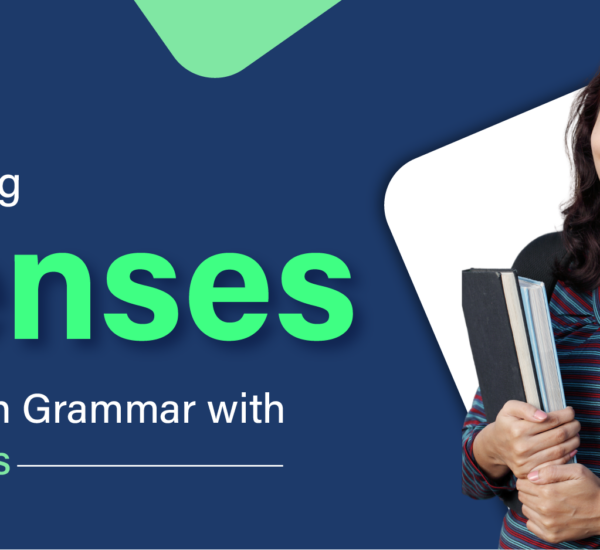The modal verbs are also called modal auxiliary verbs or Modals. These are special verbs that act upon in the sentence with irregular behaviour. You should know each aspect and function of them to use them correctly in your sentences and make them magnificent.
You are called a good orator when you speak fluent English with correct grammar. You can’t speak fluently and correctly if you are not precisely aware of the usage of any grammar concept.
This article is the best choice for you to grab the information regarding the functions of modal verbs. If you are preparing for an English competitive test, the information given in the article will help you too to fetch high scores and if you are learning English to be skilful, you will be proud to choose this article. So, let’s begin with the most significant information on the modal verbs in English grammar.
Also Read: What are Transitive and Intransitive Verbs? Let’s Learn English to Be Magnificent!
Modal Verbs
The modal verbs are called by multiple names such as modals, modal verbs, modal auxiliaries, and modal auxiliary verbs. These verbs behave irregularly in English and are special in their usage. Unlike other normal verbs, they provide some more information related to the functions of the main verb that follows the modals.
They also consist of different varieties of communicative functions. To use them perfectly in your English speaking and writing, you need to acknowledge the information regarding their characteristics. Here are the characteristics of the modals.
#. The modal auxiliary verbs never change their form. The writers or people speaking in English can’t add “s”, “ed”, “ing”…
#. The models are always followed by an infinitive. But, they are followed without “to” (e.i. the bare infinitive.)
#. The modal verbs are prominently used to indicate modality. They also allow the speakers to express certainty, possibility, willingness, obligation, necessity, and ability differences in the sentences.
Modal Auxiliaries in English
The models play a crucial role in the English sentence. You must be aware of their list and usage to apply them in your sentences without any doubt to be magnificent. The list of the modals is given below.
Go through them along with the examples that are given after this paragraph. These are extremely important if you are preparing for some English competitive exam or if you are working in a professional environment. So, let’s check out the list of modal auxiliary verbs.
can, could, may, might, will, would, shall, should, must.
The verbs or expressions dare, ought to, had better, and need not can also be added to the above list of modals as they behave like modal auxiliaries to a large extent and may be added to the above list. The modal auxiliaries can be used in different expressions in multiple sentences that are given below.
#. Permission
# Ability
#. Obligation
#. Prohibition
#. Lack of necessity
#. Advice
#. possibility
#. probability
Also Read: Proper Uses of Simple Present Tense in English: A Guide to Better Gramma
Examples of Modal Verbs
Examples give you practical learning about any particular concept. If you want to learn the modal verbs perfectly, you need to go through the examples given here. Have a look at the list of modals with examples given below.
#1. must
Strong obligation
Example:
You must stop when the traffic lights turn red.
logical conclusion / Certainty He must be very tired.
Example:
He’s been working all day long.
#2. must not
prohibition
Example:
You must not smoke in the hospital.
#3. can
ability
Example:
I can swim.
permission
Example:
Can I use your phone, please?
possibility
Example:
Smoking can cause cancer.
#4. could
ability in the past
Example:
When I was younger I could run fast.
polite permission
Example:
Excuse me, could I just say something?
possibility
Example:
It could rain tomorrow!
#5. may
permission
Example:
May I use your phone, please?
possibility, probability
Example:
It may rain tomorrow!
#6. might
polite permission
Example:
Might I suggest an idea?
possibility, probability
Example:
I might go on holiday to Australia next year.
#7. need not
lack necessity/absence of obligation
Example:
I need not buy tomatoes. There are plenty of tomatoes in the fridge.
#8. should/ought to
50 % obligation
Example:
I should / ought to see a doctor. I have a terrible headache.
advice
Example:
You should / ought to revise your lessons.
logical conclusion
Example:
He should / ought to be very tired. He’s been working all day long.
#9. had better
advice
Example:
You’d better revise your lesson
Also Read: What is a Proper Noun? Check Out the Information About Noun and its Functionalities!
Let’s Test Whether You have Understood How to Use the Verbs
Now, if you have understood the modal auxiliary verbs, you should test your verbs knowledge because, without the perfect verb usage, you can’t use the correct functionalities of the modals. So, go through the questions given below. Complete the following English sentences using is, are, was, or were. You must practice and test your learning to improve your skills.
#1. What …………… are you doing at 7’O clock in the morning?
- a) are b) were c) is d) was
#2. I ……………….. sleeping when the telephone rang.
- a) are b) were c) is d) was
#3. When you phoned I …………… working in the garden.
- a) are b) were c) is d) was
#4. When I got up this morning the sun ………….. shining.
- a) are b) were c) is d) was
#5. ‘Who made this report?’ ‘I ………………. working on it.’
- a) are b) were c) is d) was
#6. I……………….. painting all day yesterday.
- a) are b) were c) is d) was
#7. The children ……………….. playing video games.
- a) are b) were c) is d) was
#8. She …………………. working tonight.
- a) are b) were c) is d) was
#9. The teacher ……………. evaluating the English answer sheets right now.
- a) are b) were c) is d) was
#10. You can’t go out now. It …………….. raining cats and dogs.
- a) are b) were c) is d) was
#11. We ……. in no mood to study on a Sunday.
- a) are b) were c) is d) was
#12. There ……. trees falling on the street, due to heavy rains.
- a) are b) were c) is d) was
#13. How ……. the students performing in the test?
- a) are b) were c) is d) was
#14. That ……. a very slow movie.
- a) are b) were c) is d) was
#15. I read an article on “how to write effective emails” on fluent life’s page, and it ……… awesome.
- a) are b) were c) is d) was
Also Read: Vocabulary for Pronouns: Let’s Learn the Rules and Usage of Pronouns for Everyday Life
English Grammar
English grammar is the most important and influential part of learning English. If you are learning English these days or if you are preparing for any English test, you need to focus on English grammar and English Grammar starts with the verbs.
You must focus on the usage of verbs correctly. We hope that this article has helped you with the potential information regarding the modal auxiliaries. You can be perfect in speaking as well as writing English once you are updated and acknowledged with the English grammar rules and ethics. Grammar makes the sentences meaningful and relatable. You can go wrong with the sentence meaning with wrong grammar usage.
So, you must focus greatly on learning English grammar from the best platform and experts. You should make a perfect plan if you are learning yourself to begin with the basic points and then reach the apex to get perfect. You must learn the rules and use them in your sentences regularly.
Practicing will help you the most in learning English. So, ensure practicing regularly on the things that you have learned. You will become advanced in the language by working on it dedicatedly and effectively.
Also Read: Direct and Indirect Speech: Get to Know the Rules and Application with Examples
Conclusion
Hopefully, the article has given you the best information regarding the modal verbs in English grammar. You must have understood the functions with the help of examples given in the table. If you require more information related to this concept or other grammar concepts, you can visit the Fluent Life application or Fluent Life website.
You can choose any of them to make your career bright by learning about the most effective and used language in the present scenario. Verbs are an important factor of grammar as you can not complete any sentence in English without using verbs and if you go wrong with verbs, you will go wrong with the complete sentence.
You must visit the website to understand the concepts with examples through articles and you can visit the application to learn English according to your pace in a customized way. Due to the flood of different platforms, it is difficult for the learners to choose the best platform. You can select any platform for yourself if you get suitable results.
You should try the Fluent life once and you will never regret choosing it, rather you will feel proud and confident as you will grow your knowledge with each article and lecture. The experts are always available on the website as well as applications to guide you on each step. You can learn with the application by downloading it on an iOS or Android phone. So, best of luck with your learning.






